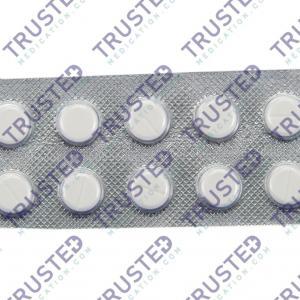
Birth control contains estrogen, which may increase blood pressure. When women with high blood pressure use these methods, they have an increased risk of stroke and heart attack compared with women who do not have high blood pressure.
What are Birth Control Pills?

Also known as contraception, is the use of medicines, devices, or surgery to prevent pregnancy. There are many different types. Some are reversible, while others are permanent. Some types can also help prevent sexually transmitted diseases (STDs).
Birth control pills are a kind of medicine with hormones. These pills come in a pack, and you take one daily. The pill is safe, affordable, and effective if you always take your pill on time. Besides preventing pregnancy, the pill has many other health benefits.
There are two kinds of contraception pills:
- Combination pills (aka combined oral contraceptives, or COCs)
- Progestin-only pills (aka POPs or mini-pills)
The pill works by stopping sperm from joining an egg. When sperm joins with an egg, it’s called fertilization. The hormones in the pill safely stop ovulation. No ovulation means there’s no egg for sperm to fertilize, so pregnancy can’t happen. The pill’s hormones also thicken the mucus on the cervix. This thicker cervical mucus blocks sperm, so it can’t swim to an egg.
Recommended birth control pills:
- Yazz (Ethinylestradiol and Drospirenone) – A combined oral contraceptive medication pill that will prevent you from getting pregnant. The drugs work by stopping the release of an egg cell from the ovaries and making the cervical mucus stickier. It also changes the cervical lining and uterine. Through this, the sperm cell will find it hard to reach the egg in the uterus wall.
What are the Side Effects of Taking Birth Control Pills?
Birth control pills affect a person’s hormone levels, leading to various side effects. These effects usually resolve within 2–3 months but can persist. If the side effects last for a long time or are very uncomfortable, it is best to talk to a healthcare provider about trying a different brand or a different method of birth control.
1. Spotting between periods
Spotting is the most common side effect of birth control pills. It happens because the body is adjusting to changing levels of hormones, and the uterus is adjusting to having a thinner lining. Taking the pill as prescribed, usually every day and at the same time each day, can help prevent bleeding between periods.
2. Nausea
Some people experience mild nausea when taking the pill, but this usually subsides. Taking the pill with food or at bedtime may help.
3. Breast tenderness
Taking birth control pills often causes the breasts to feel tender, especially soon after a person starts taking them. Wearing a supportive bra can help reduce breast tenderness.
4. Headaches and migraine
The hormones in birth control pills can cause or increase the frequency of headaches and migraine. Changes in the female sex hormones (estrogen and progesterone) can trigger migraine.
5. Weight gain
In theory, birth control pills could increase fluid retention or water weight. They could also lead to increases in fat or muscle mass. However, some people may instead report weight loss when taking the pill.
6. Mood changes
Hormones play an important role in a person’s mood and emotions. Changes in hormone levels, which taking the pill may cause, can affect a person’s mood. People who are concerned about mood changes can talk to their healthcare provider. If the symptoms are linked to taking the pill, changing pills may help.
7. Missed periods
Taking birth control pills can cause very light periods or missed periods. This is because of the hormones they contain.
8. Vaginal discharge
Changes in vaginal discharge may occur when taking the pill. This may be an increase or decrease in vaginal lubrication or a change in the discharge.
How are Birth Control and High Blood Pressure Connected?
Birth control methods that contain synthetic estrogen may raise your blood pressure. These are:
- Combined hormonal birth control pills
- Skin patches
- The vaginal ring
According to research, high-dose birth control pills may raise blood pressure, whereas low-dose pills may have a less profound effect. More research is needed to know whether vaginal rings and hormonal skin patches affect blood pressure less. According to current research, the risks are similar to those of combination hormonal birth control pills.
The hormone Drospirenone is the only exception. It’s a progestin in combination with birth control pills that may lower blood pressure a little bit. This may be due to Drospirenone’s diuretic properties, which curb estrogen’s tendency to raise blood pressure. Most people whose blood pressure goes up on the pill see it return to normal within about three months of stopping.







